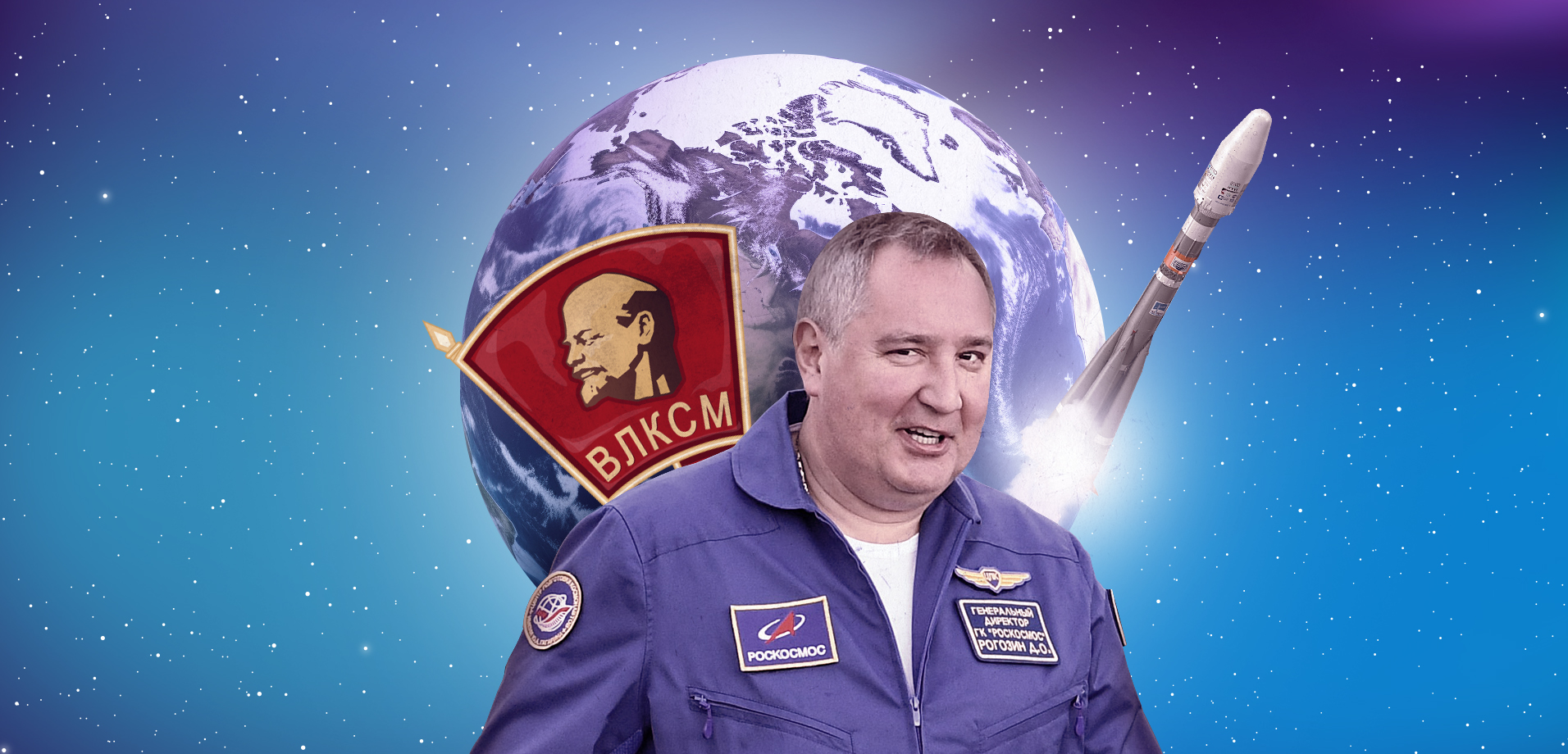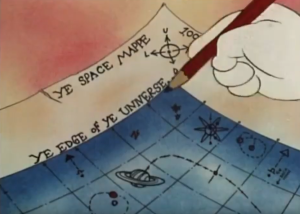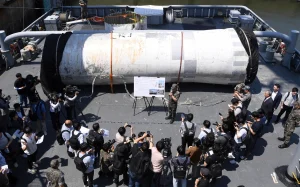Dmitry Rogozin: from Komsomol Member to Russian Space Chief
12th Apr 2022
The Soviet Union made the history of space exploration as the first country to launch its satellite, an astronaut into orbit, and even a spacecraft to the Moon. However, two decades later, military and economic problems significantly reduced soviet space ambitions, and the championship was ceded to the United States and China. In 1990, the Soviet Union collapsed, and Russia inherited all its achievements, including those made in the space sector.
Established in 1992, the Russian space agency Roscosmos still claims to be one of the key players in the global space launch market. Its Chief, Dmitry Rogozin, often engages in a sharp controversy and even defies Elon Musk.
This article explores intriguing biographical facts of the controversial Roscosmos director and looks into what the Russian space industry has become under his leadership.
Stellar career under KGB patronage
Dmitry Rogozin was born in Moscow on 21st December 1963, in a family of a high-ranking military officials of the USSR Ministry of Defense. Aged 16, he became a Communist League of Youth member. In 1986 he graduated from the Faculty of International Journalism at Moscow State University. Many university colleagues spoke of Rogozin as a cynic who loves high life and dreams of a great career.
Dreaming of serving in the KGB foreign intelligence, the ambitious young man completed an internship in Cuba. But instead of staying in intelligence, he got a diplomatic job, essentially becoming a KGB agent in civvies. Rogozin’s work for KGB has no official confirmation, but his golden child’s career has never failed. Whatever Rogozin did, he always got away with it.
After the collapse of the Soviet Union, Rogozin went head first into politics. For twenty years, he has gone through a stunning career path from a deputy of the State Duma to the vice-premier at the government of the Russian Federation. From 2011 to 2018, he supervised the defence, nuclear, rocket-building and space, shipbuilding, aviation, radio-electronic industries, export control, civil defence, border policy, and the construction of the Vostochny cosmodrome in the Far East of Russia.
In 2015, he initiated the restructuring of the Federal Space Agency Roscosmos into State Corporation Roscosmos to “ensure the unity of management of the rocket-building and space industry.”
In May 2018, president Putin offered Dmitry Rogozin the opportunity to head up the new Space Office.
Roscosmos with Rogozin – a 4-year flight to nowhere
A rich space heritage and active rocket-building and space potential development have provided Russia with a high launch market share. Since the joint launch of ISS with NASA in 1998, the Russian Progress cargo spacecraft has conducted 47 missions to ISS. Russian rocket scientists constantly updated the modifications of Proton and Soyuz classes’ launch vehicles and developed a new generation – Angara. They have established close cooperation with the European Space Agency on many projects and with Boeing as part of the Sea Launch marine spaceport project. From 2006 to 2010, the Russian Federation launched more satellites than any other country. Until 2019, Russia accounted for about 42% of all orbital launches (an average of 22 per year).
At the same time, new problems arrived gradually. In 2014, Ukraine broke off cooperation with the Russian Federation in the military-industrial complex due to Russian military aggression against Ukraine. The Russian owner of Sea Launch, S7 Corporation, was forced to freeze the project since Ukrainian launch vehicles Zenit 3SL were needed for launches. At the same time, sanctions were imposed on Russian politicians, Dmitry Rogozin among them. Sanctions include a prohibition on entry to the United States and some EU countries and the seizure of his foreign assets. But the biggest blow to the competitiveness of the Russian rocket-building and space industry were cheap private launch vehicles that appeared on the market.
The new Russian space chief and the industry restructuring program he proposed should have helped cope with the challenges. But what really happened?
Over the past four years, Russia has lost its share of the global space market by almost five times, losing about $4 billion. The number of launches has decreased by 20%. At the same time, the American commercial launch market share has increased from 20% to 32%, and the Chinese – from 20% to 35%. Allegedly, the reason for this stagnation is that the state launch program does not use all the capabilities of Roscosmos, which is why many enterprises are forced to engage in non-focus work. But what prevents Dmitry Rogozin from implementing new successful space projects?
The major problems of the Russian space industry
According to him, the problem lies in the global sanctions, due to which Russia has lost many imported components and total corruption in the defence and space sectors. However, Mr Rogozin seems to have forgotten that it is his responsibility since he worked as Deputy Prime Minister, who managed the defence industry from 2011 to 2018 and is still in charge of Roscosmos. And all this time, embezzlement and criminal cases, in which Rogozin appears exclusively as a claimant, did not stop in these areas.
Roscosmos regularly files numerous lawsuits against its subsidiaries. One of the most notorious stories is focused around theft at the construction of the Vostochny cosmodrome, where 58 persons participating in the project were convicted of fraud and abuse of authority. It seems that Russian enterprises in the defence and the space industries are only busy harming each other and fighting in the courts.
Meanwhile, the chief “righteous man and fighter against corruption” appears to live beyond his means. With an average annual income of about 300 thousand dollars, his declaration includes luxury cars, apartments and land worth almost 10 million dollars. And while Mr Rogozin is rapidly getting richer, Roscosmos, under his leadership, is even more rapidly failing.
The failures of Russian space
In August 2018, the ISS crew discovered a suspicious hole in the coverage of the Soyuz-MS-09 spacecraft, which caused an air leak in the Russian module. The astronauts patched the hole quickly, but questions about its origin remained. Rogozin categorically dismissed the version that the hole arose due to negligence during the ship’s assembly. Instead, he blamed the American ISS crew for drilling the hole. “There is another version that we do not dismiss – a deliberate impact in space. There are several attempts to use a drill,” Rogozin said in the first days after the incident.
In October, another incident called into question the reliability of Russian space technology. Approximately two minutes after the launch, the Soyuz-FG launch vehicle, which was supposed to put the Soyuz MS-10 manned spacecraft into orbit, crashed. The descent module made an emergency landing, and the crew survived. But the cause of the accident turned out to be shocking – during the first separation stage, one of the sensors failed, sending the spacecraft into a “ballistic reentry mode”. The cause of the failure was a poor assembly of the launch vehicle – the sensor got damaged during installation. There was no one to blame this time but himself, and Rogozin was forced to admit the negligence.
In 2019, Roscosmos avoided accidents but still had losses. The only Russian orbital telescope, Spektr-R, has stopped communicating with the Earth. Even though the device had already worked for two years more than planned, the engineers tried to restart it in four different ways. All attempts were in vain and only proved that Roscosmos is experiencing severe problems updating equipment in orbit.
On July 21, during the launch of the newest Nauka module at ISS, massive system failures happened, and the team had only eight days to fix them and avoid irreversible consequences. Roscosmos admitted that ISS astronauts had never been in such danger.
But Rogozin’s biggest shame of the Russian space industry is the Vostochny cosmodrome. $170 million was stolen from the project, but that wasn’t the biggest problem. The main problem is that stealing continues; the cosmodrome doesn’t pay off and has already become a black hole for the Russian budget. Since its opening in 2016, only 11 launches have been taken from Vostochny. At the same time, the maintenance of infrastructure and personnel requires enormous costs, and the construction of the facility continues. This comes with a catastrophic plunge in Roscosmos revenues and cuts in the Federal Space Program funding.
However, this state of affairs does not seem to bother the Russian space chief. Instead of correcting his own mistakes, he regularly blames his competitors.
Dmitry Rogozin’s scandalous rhetoric
In 2014, after the introduction of sanctions due to the Russian aggression against Ukraine, Dmitry Rogozin emotionally declared that the sanctions would backfire on the United States and offered NASA to deliver their astronauts to the ISS using a trampoline. The threat looked ridiculous since not only Russian ships, including Soyuz and Progress, but also the American Orbital Cygnus and Space X Dragon carried out missions to the ISS.
In 2018, Rogozin suggested checking if the Americans were on the Moon. “We set a mission – to fly to check whether they were or were not… They say that they were, we will check,” the Russian Space Chief joked. However, he immediately added that no country alone would be able to implement the lunar program that day and hoped for cooperation with the USA. In other words, he admitted that Russia could not reach the Moon on its own.
In September 2020, Dmitry Rogozin announced the Venus Mission as part of the 2021-2030 federal space program while speaking to reporters at Moscow’s HeliRussia 2020 international helicopter industry exhibition. At the same time, he called Venus a Russian planet, probably because the USSR had already implemented the Venus program from 1961 to 1984. After that, Russia didn’t conduct research on the planet, while NASA, ESA, and JAXA launched their satellites to Venus in 1989, 2005 and 2010.
On 3rd March 2022, the Roscosmos director made another harsh statement about NASA. A new set of space sanctions against Russia was imposed due to the full-scale war unleashed by the Russian Federation against Ukraine on 24th February 2022. Russia immediately responded to the sanctions by stopping the supply of rocket engines to the USA, and Dmitry Rogozin commented on this decision: “In this situation, we can no longer supply the US with our rocket engines that are the best in the world. Let them fly on something else, like their broomsticks or whatever.”
The Russian Space Chief announced that Roscosmos was suspending cooperation with ESA on launches from the cosmodrome in French Guiana in response to EU sanctions. The launch of a Soyuz rocket with satellites from the British satellite operator OneWeb was cancelled even though the rocket was already on the launch pad. However, OneWeb wasn’t affected by this step since it almost immediately received an offer from Elon Musk. This is not the first time that Roscosmos has lost to SpaceX. And this competition is not only about the activities of the companies.
Dmitry Rogozin vs Elon Musk
Elon Musk and the Russian Space Chief have been trading barbs on Twitter for a long time. In March 2020, after the launch of Crew Dragon to ISS, Elon Musk played a joke on Dmitry Rogozin, saying, “Trampoline is working!” during a NASA press conference, reminding the Roscosmos director of his angry anti-sanction tweet addressed to NASA in 2014.
Dmitry Rogozin did not hesitate to respond and, already in April, accused SpaceX of dumping, threatening to respond with a 30% reduction in the price of Russian rocket launches. Elon Musk pointed to a significant drawback of Russian launchers – non-renewability. Rogozin made a poor attempt to answer with the publication of a photo in which Roscosmos specialists restore a fragment of the Soyuz rocket in the harsh snowy conditions of Yakutia (the northern region of Russia). “This is not Boca Chica (SpaceX cosmodrome in Texas). This is Yakutia in winter. I wonder if the gentle SpaceX is able to work in such conditions?” Rogozin commented on the photo. But Elon Musk ignored this attack.
In September 2021, Rogozin apparently missed the attention of the SpaceX chief, so he suddenly changed his strategy. He praised Musk for his achievements in space and even invited him to visit his home. “I have already put the kettle on,” Rogozin tweeted, but Musk was silent again.
The war on Twitter flared up in 2022 after Russia’s military invasion of Ukraine. On 2nd March, Rogozin burst into an angry tweet about Musk’s intention to provide Starlink internet to Ukraine. The very next day, Musk mocked Rogozin again, this time for his comment about shutting out the supplies of Russian rocket engines to the United States and proposal to launch satellites on broomsticks. He posted a Falcon 9 Starlink launch video with the comment: “Time to let the American broomstick fly and hear the sounds of freedom”.
However, Elon Musk is not the only one that the Russian Space Chief criticises. Rogozin’s twitter feed is full of aggression and toxic statements. After all, when there is no money for space and no innovations, the sanctions are pressurising, and the industry is sick with corruption, which you lead, all you can do is drown in anger.
Roscosmos Chief dismissed
On 5 July 2022, Vladimir Putin dismissed Dmitry Rogozin as head of Roscosmos, appointing former Deputy Prime Minister for the Space and Defence Industry Yury Borisov to replace him. The Kremlin hastened to say that it does not have any complaints about Rogozin’s work; on the contrary, it considers his work to be very successful and productive, and his resignation is linked to “a transfer to another job.”
It is difficult to understand the logic of the Russian authorities, who would call successful the work of an official who for more than four years has been virtually destroying the industry that was entrusted to him. But the fact remains that Rogozin remains Putin’s favourite. This means he is likely to get away with tearing down Roscosmos without any major repercussions. The same cannot be said about Roscosmos itself. It is obvious that it will take a long time to restore trust in Roscosmos as an international partner. Whether Rogozin’s successor will cope with this task or continue the methodical destruction of the Russian space industry, we will find out soon.






Thank you for your comment! It will be visible on the site after moderation.